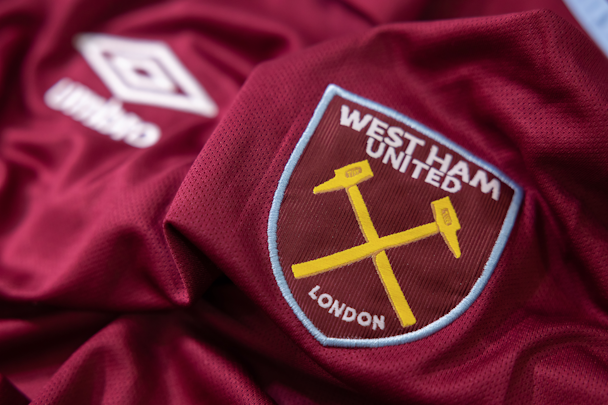West Ham counting cost after failing to read the room on Kurt Zouma cat cruelty scandal
West Ham's handling of the Kurt Zouma cat cruelty scandal has already resulted in one sponsor walking away and others are said to be considering their position. Amar Singh, a sports marketer who previously worked for the Hammers, explains why the club's response has compounded a sorry situation.

West Ham United are facing a backlash from fans and partners / Adobe Stock
West Ham United were quick to release a statement saying they ‘unreservedly condemn’ the actions of Kurt Zouma after a video of him brutally kicking and punching his pet cat went public.
But in selecting the defender to play before the club had taken any action, manager David Moyes failed woefully to ‘read the room’ and invited even more scrutiny onto the club resulting in the loss of at least one commercial partner.
West Ham announced on the day after the game that Zouma would be fined ‘the maximum amount possible’ with the money going to animal welfare charities, but the way they responded, and the subsequent fallout, offers plenty of lessons.
The sanction didn’t go far enough for Vitality – the club’s ‘wellness partner’ – which announced it had suspended its partnership after being ‘hugely disappointed by the judgement subsequently shown by the club in response to this incident.’
The east London club cannot be blamed for Zouma’s inexplicable brutality – but how you respond as an organization to any crisis matters more than ever, because social media has amplified the court of public opinion. And this can swiftly expose not just your own brand but your partners too.
This is particularly true when it comes to football fans.
We might love our teams unconditionally, but we will always make it known when the current custodians of the club are not reflecting the values we expect.
For an experienced coach, selecting Zouma to face Watford in Tuesday’s Premier League match because he is ‘one of West Ham’s better players’ was a spectacular own goal, which made the club’s condemnation seem hollow amidst a fierce public backlash.
More than 140,00 people have signed an online petition demanding Zouma be prosecuted.
With the police examining the footage and the RSPCA removing the cats from his home, Zouma and West Ham continue to face a barrage of criticism from public figures ranging from TV conservationist Chris Packham to London mayor Sadiq Khan.
As far as audience sentiment goes this is almost as bad as it gets, and Brand Watch data shows that 43% of all tweets mentioning West Ham after the game against Watford were negative, which is astonishingly high considering they won the game and moved into the top four.
But, you suspect that nothing will convince the club that they cannot afford to make the same mistakes again more than Vitality’s suspension of their partnership – with a further two sponsors considering the same action.
Both travel operator Experience Kissimmee and FinTech firm Yield App have announced that they were ‘disheartened’ by the decision to play Zouma and have suggested they could be ready to pull the plug on their partnerships with West Ham.
It’s no surprise.
Fans today expect more from brands and sponsors in football than ever before.
It’s not enough to say you believe the world should be a better place – it’s imperative that you show how you are making it a better place. Consequently, these companies are investing more in ensuring that the values and actions of their partners chime with their own values and purpose-driven work.
Our recent study of global sports fans, Decoding, found that two out of three fans across Europe would notice a sponsor if they support a charity or cause they believe in – with animal welfare the most likely cause of interest.
And what's more only one in five football fans believe that football is doing enough to address societal issues and almost half (49%) agree that it needs to do more, according to a study by the European Club Association.
In this climate, the audience demands action – not just words.
It’s a highly regrettable situation for West Ham United, a club that has worked tirelessly to deliver success on the pitch after relocating to the London Stadium in 2016.
Moyes’s first team have reaped the benefits of the club’s new commercial footing and are enjoying a fine season with a genuine shot at qualifying for the Champions League.
Now should be an optimum time for the club to attract new sponsors based on the renewed optimism around the club and potential of this team – not frantically trying to hold on to existing ones.
Appearing to be a soft touch on animal cruelty runs against the values of West Ham United, a club with deep community links.
As head of content at West Ham between 2017 and 2019 I experienced first-hand the values that run through the club and its impassioned fanbase.
Its admirable work in areas such as diversity and equality, public health and community cohesion delivered in economically deprived boroughs such as Newham and Tower Hamlets by one of the best club foundations in the Premier League should not be overshadowed by this.
But until West Ham United utilise the power of their platform to work proactively to support animal welfare, educate Kurt Zouma and reassure their fans and partners that football results do not take precedence over morality, questions will remain.
Amar Singh is head of content and communications at MKTG Sport + Entertainment
